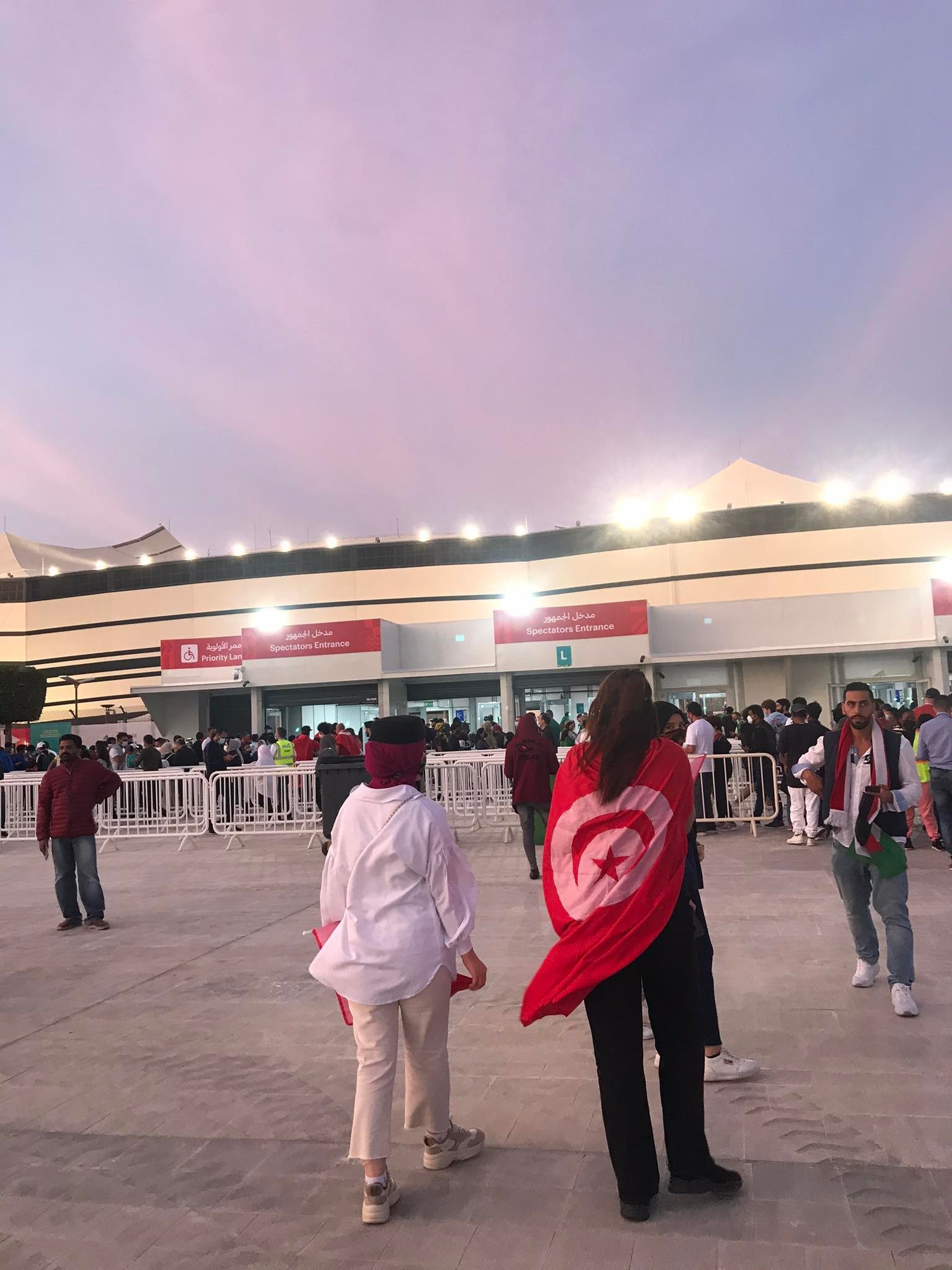Originally Posted on Feb. 3, 2022
The sky swirled in pastels of pink-and-blue cotton candy above Al Bayt Stadium in Al Khor, Qatar.
People of all ages, decked out in green, red, and white, walked in packs from surrounding parking lots and settled into lines outside the stadium.
Dec. 18 marked the final game of the 2021 Arab Cup between Tunisia and Algeria, which are bordering countries in North Africa.
My friend from the UK and I rode a free public bus to avoid the mile of backed-up traffic on the highway.
Inside the stadium, I was a dot among the more than 60,000 people.
Throughout the game, my friend and I stood up and sat down, depending on whether the fans in front of us were in our view of the bright green field.
Beside me was a young Tunisian woman. She wore a long, floral dress that matched her head wrap. The entire game, she jumped up and down and shouted for her team to win.
Occasionally, the big flag she had tied to her wrist flew into my face when she raised her arms to cheer. She apologized a few times, but I didn’t mind. Her energy was contagious.
“Would I be a soccer fan if I had been born over here?” I thought as I flashbacked to American football games at Bray-Doyle where I spent hours on the yellow-and-green-patched field as I yelled, “Let’s go, Donkeys,” and I smiled at the fans and players—most of whom I’d known since kindergarten.
“Ayer, Ayer, Ayer! Jouez, Jouez, Jouez!” the Tunisian fans sang.
My friend, who had taken classes in French, took a guess at what they were saying.
Go, go, go, play, play, play, he said.
We confirmed on Google that he was right.
He was rooting for Algeria, but I had already decided to be on Tunisia’s side.
Though an outsider, I dressed in the Tunisian shade of red for the occasion—which is USA red. I ended up wearing the same shirt that I wore on Fourth of July back home.
The high-pitched whistles, drumming, and clapping filled the stadium.
I could hardly understand the cheers, but I could see the camaraderie and competition on the faces of everyone around me.
By halftime, the score was still 0-0.
We walked to the concession stand to buy chicken shawarma, karak tea, and bottled water.
When we returned to our seats, the stadium lights were off.
Within the next minute, the open-roofed stadium was filled with thousands of dotted white lights—like stars. People pulled out their smartphones, turned on their flashlights, and swayed from side to side under the night sky. The stadium felt magical.
When the game resumed, the score remained 0-0 until the end of the game—then the teams entered overtime.
Finally, Algeria scored twice for the win.
Fire torches blew and gold confetti flew as the players gathered on the field for the awards ceremony.
During the long walk from the stadium to the bus, we stopped to watch a live band featuring a saxophone player. The mini street-side concert drew in passerby, who diverted from their route to the parking lot to walk closer to the music.
Listening to the band with strangers all around, I felt a lightness—the victory of a night well lived.


















